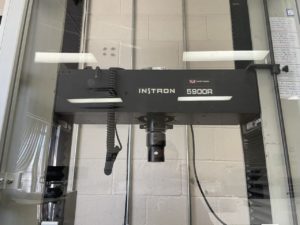ASTM D790
Standard Test Methods for Flexural Properties of Unreinforced and Reinforced Plastics and Electrical Insulating Materials
ASTM D790 tests the flexural properties of unreinforced and reinforced plastics and electrical insulating materials. This test consists of a bar of rectangular cross-section resting on two supports and then loaded by means of a loading nose between the supports. Micom offers the ASTM D790 test as part of its Plastics testing services.
ASTM D790 Uses and Factors to Be Considered

Two Test Procedures in ASTM D790 Test
- Procedure A: is the preferred procedure for this test method because it has been designed for materials that break at small deflections and can be used to measure the flexural modulus.
- Procedure B: is for materials exhibiting larger deflections upon testing and cannot be used to measure the flexural modulus.
Flexural Properties and Typical Experimental Parameters
Flexural properties may vary depending on the specimen depth, the testing temperature, the atmospheric conditions, as well as the difference in the rate of straining as specified in Procedures A or Procedure B.
- Number of specimens per product: Typically 5. However, in some cases, the tensile properties need to be measured both in the machine and perpendicular to the machine direction as they can vary substantially from one orientation to the other. This behavior is called anisotropy.
- Distance between supports (span): A support span-to-depth ratio of 16:1 is typically used
- Specimen dimensions: varies as a function of material type and thickness. Refer to section 7.2 of the test method.
- Conditioning and testing Temperature: 23 ± 2 °C
- Conditioning and testing relative humidity: 50 ± 5%
Related Test Methods
The ASTM D6272, which tests samples that are too flexible, is related to the ASTM D790. For additional related test methods, we invite you to visit our Plastics Testing section.
If you have any questions about ASTM D790, or about plastics tests in general, we invite you to contact us today. It will be our pleasure to answer your material testing questions.
Paint, Coating and Polymer Testing Services
We also invite you to download our brochure to learn more about our Paint, Coating and Polymer testing services.

